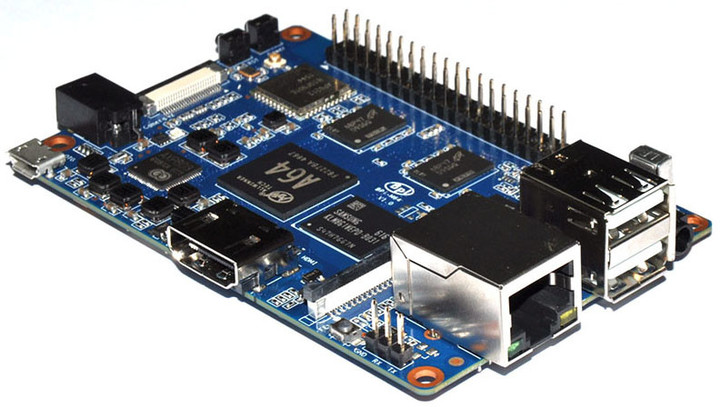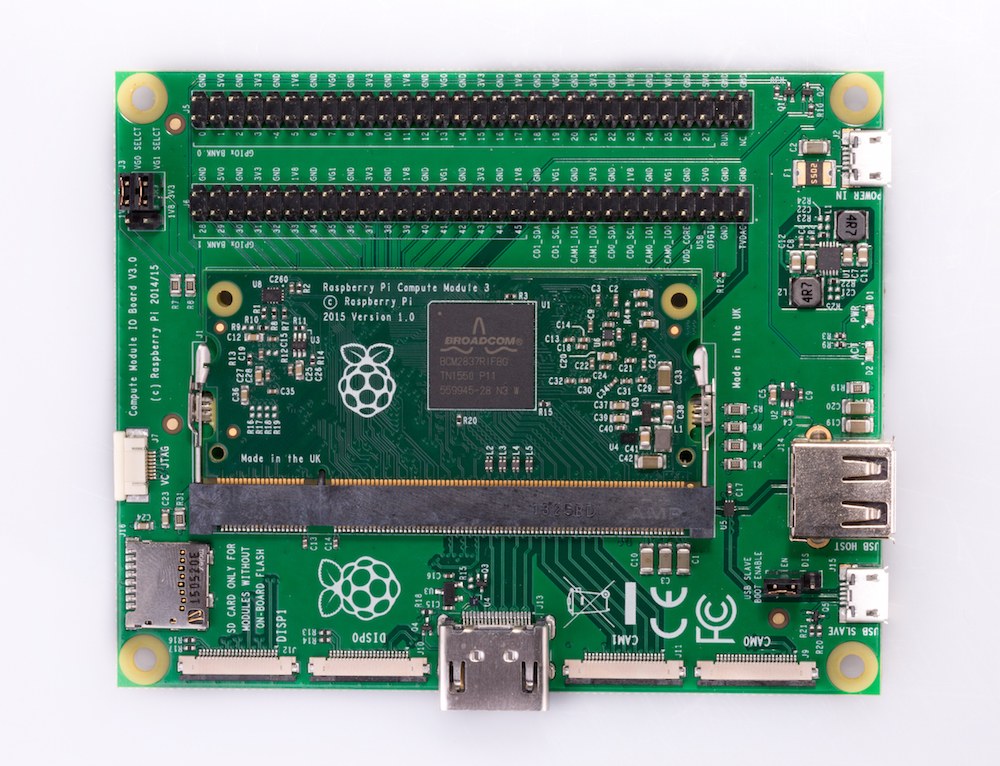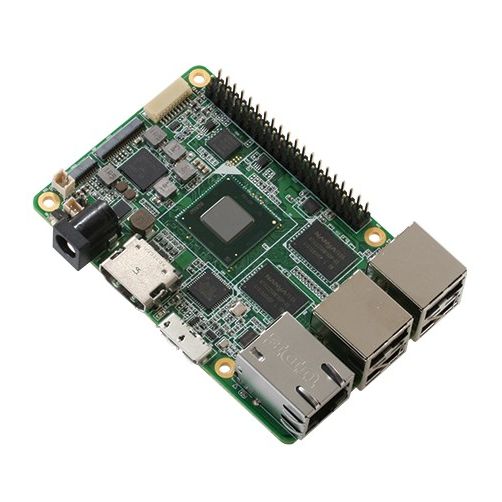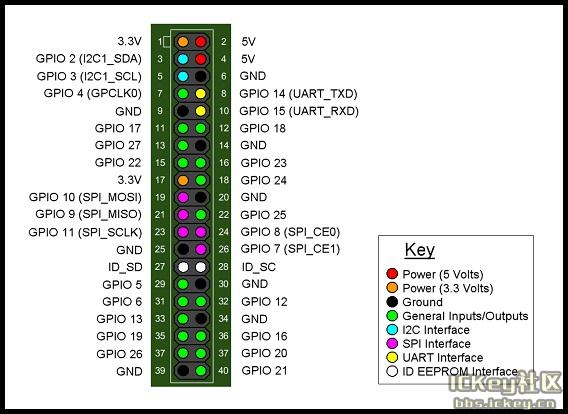Banana Pi M64

Advantages:
- eMMC (instead of microSD)
Disadvantages:
- non-regular RPI instructions (non-100% compatible GPIO wiring PI)
- not up-to-date Raspbian OS
- purchasing price
Install procedure:
Raspberry PI Compute Module 3

Advantages:
- industry-designed (temperature robustness)
- eMMC (instedad microSD)
- regular RPI instructions and Raspbian OS
- extended GPIO pins (if needed)
Disadvantages:
- purchasing price
- missing LAN interface (need to be used USB-LAN adapter)
Install procedure:
https://www.raspberrypi.org/documentation/hardware/computemodule/cm-emmc-flashing.md
Make sure J4 (USB SLAVE BOOT ENABLE) sudo apt-get install git git clone --depth=1 https://github.com/raspberrypi/usbboot cd usbboot sudo apt-get install libusb-1.0-0-dev make sudo ./rpiboot sudo dd if=raw_os_image_of_your_choice.img of=/dev/sdX bs=4MiB
TTN installation
==============
1) follow the same steps as in Raspberry PI 2/3
2) in ./bin/start.sh comment GPIO7 (otherwise PIN7 is in HIGH and iC880 is in restart mode)
PINOUT:

UP board 2GB + 32 GB eMMC memory

Advantages:
- industry-designed (temperature robustness)
- eMMC (instedad microSD)
- regular 64bit OS (e.g. Ubuntu 18.04)
Disadvantages:
- higher price (more-less 4x higher than RasberryPi)
- GPIO emulation
- some scripts doesn’t detect a version of HW (need to debug)
- TTN script
/opt/ttn-gateway/start.shneeds to be updated. UPboard has a default state on GPIO pin no xxx as hight (the original script for RPI expect the low state) - Update of SPI
- TTN script
Buy at: https://www.iqrf.shop/product/detail/?product=2461

Install procedure:
1) boot USB Rfus (https://rufus.akeo.ie/) with ubilinux.iso (https://emutex.com/products/ubilinux), see also http://wiki.up-community.org/Ubilinux
2) after boot press F7, choose target disk: usually the default is ok (/dev/mmcblk0)
3) set boot to runlevel_2
4) connect UP board with iC880, CAUTION: reset pin (pin13 at iC880) in connected to (=Linux GPIO 7, upBoard pin =22)
5) follow the instructions at http://lora.vsb.cz/index.php/building-ttn-gateway/
6) if the installation fails go to /opt/ttn-gateway and manually install packet_forwarder and lora_gateway
7) add in ./bin ln -s with link to reset_pkt_fwd.sh
8) in reset_pkt_fwd.sh an in start.sh change reset pin to 22
9) in ./bin/start.sh call ./restart_pkt_fwd.sh before pckt_fwd.sh
10) modify in
./lora_gateway/libloragw/inc/lorank.h
./lora_gateway/libloragw/inc/imst_rpi.h
#define SPI_DEV_PATH "/dev/spidev0.0" cat /sys/bus/spi/devices/spi* #define SPI_DEV_PATH "/dev/spidev2.0"
11) start by: /opt/ttn-gateway/bin/start.sh
restart by: /opt/ttn-gateway/bin/restart_pkt_fwd.sh start
12) make backup via bootable USB with Ubuntu 18.04 (in GPT) by dd
14) DEBUG: enable in ./lora_gateway/libloragw/inc/config.h

